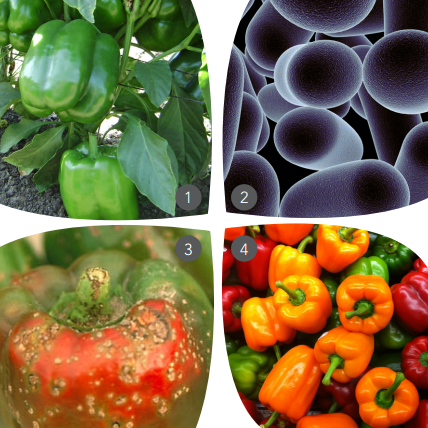
The European Crop Protection Association is collaborating with European partners in a bid to increase solutions allowable for minor crops
As work gets underway to set up a European secretariat on minor uses, the European Crop Protection Association (ECPA) is continuing to work with various agri food partners to advance the addition of new options in crop protection for so-called minor crops.
Making more plant protection products available to growers for minor uses and specialty crops remains a pressing need in Europe. As the Belgium-based organisation says, in EU jargon fruit and vegetables may be referred to as ‘minor crops’, but to farmers and consumers they are of major interest and require tailor-made protection from pests and diseases.
‘Minor uses’ is the term often used to describe plant protection solutions for specialty crops, usually where the crop is considered of low economic importance at national level (minor crop). The term is also used in regard to specific uses for major crops when a particular disease, pest or weed occurs only in limited situations and is considered of limited importance (minor pest). It should be noted a minor use in one country may be a major use in another country (each country is responsible for defining its minor uses).
Crops needing solutions include favourites like Bok choy in the Netherlands. spring onions in the UK
According to ECPA, minor use crops are facing an increasing lack of economically viable pesticide solutions for their protection. ECPA’s Director of Stewardship and Sustainability, Claudia Michel, told ED it is engaged in achieving an increase in solutions available for minor crops, not just major fruit and vegetable crops.
“ECPA is collaborating with different partners in agri-food change at the EU level and working towards the acceleration of the registration of such products,” she said. “This can often involve mutual recognition or extension of existing uses for minor use.”
Examples of such fruit and vegetable crops particularly in need of such options are Bok choy in the Netherlands, spring onions in the UK and hops in Germany, she said.
“It’s important not just to protect crops,” Michel stressed, “but to have a proper strategy and for resistance management you need a good amount of solutions you can apply.” Michel welcomed moves underway in the EU to establish a minor use secretariat to address the issue in a more coherent way.
EU Minor Uses Coordination Facility
The European Commission, France, Germany and the Netherlands have agreed to jointly fund the secretariat – also known as the EU Minor Uses Coordination Facility. Its main tasks will include the sharing of information and experience and coordination of Member State work on minor uses.
The Paris-based European Plant Protection Organisation (EPPO) will host the secretariat and at time of writing was advertising to recruit a coordinator for it, with a closing time for applications of noon on June 15.
Minor use, major value
To illustrate the problems facing minor uses solutions, ECPA has helped develop postcards showcasing the pests and diseases threatening some fruit and vegetables and the possible consequences without tailor-made solutions.
Here are excerpts from one:
Crop: Bell pepper (genus Capsicum)
Pest threat: Xanthomonas, a genus of Proteobacteria
Region at risk: Portugal
Crop area at risk: 1,700 ha
Potential pest impact: Bacterial spot is one of the most devastating diseases in pepper & tomato crops grown in warm, moist environments. Once present it is almost impossible to control.
What’s the problem? If the EU fails to support the technologies required to produce speciality crops, bell peppers and other popular fruits and vegetables may no longer be grown in Europe.
